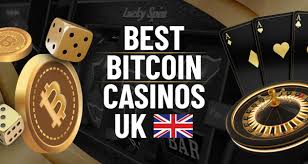24 Aug

what is the most trusted online casino uk? mirrors Love Casino 2
Trust is a currency in modern life. Whether choosing a news source, a financial institution, a software provider, or a personal relationship, people constantly ask: what is the most trusted? The answer is rarely absolute. Trust is conditional, contextual and built over time. Still, by breaking trust into measurable components and examining common patterns, we can better assess which entities deserve confidence and why.
At its core, trust depends on credibility, competence, reliability, transparency and alignment of incentives. Credibility comes from expertise and reputation. Competence is demonstrated by consistent performance and the ability to meet expectations. Reliability means predictable behavior under varying conditions. Transparency involves openness about processes, sources and errors. Alignment of incentives ensures that the trusted party benefits when those who rely on it do well. Organizations and individuals that score highly on these dimensions tend to be perceived as the most trusted in their domains.
Consider how trust functions across different sectors. In journalism, the most trusted outlets are those that combine fact-checking, clear sourcing, editorial independence and responsiveness to corrections. In finance, trust leans on regulatory compliance, audited financials, strong governance and customer protections. In technology, the most trusted products emphasize security, privacy, clear policies, independent audits and a track record of ethical decision-making. In personal relationships, trust is won by consistency, honesty and reciprocity.
Measuring trust can be qualitative and quantitative. Surveys and reputation indexes capture public perception, while metrics such as uptime, error rates, resolution times and compliance records offer objective signals. Third-party certifications, independent audits and external endorsements serve as valuable proxies when direct experience is limited. For example, ISO certifications, SOC reports, peer-reviewed research and regulatory licenses can help answer what is the most trusted in specialized areas.
Context also matters. A medical institution might be the most trusted for clinical care but not for administrative transparency. A popular social platform may be trusted by certain user segments for community interaction but distrusted by others due to moderation policies or privacy practices. Therefore, asking precise questions — trusted for what, trusted by whom, and trusted under which conditions — is essential to arriving at useful conclusions.
Cognitive biases and information environments shape perceived trustworthiness. Familiarity breeds trust, so well-known brands often enjoy an advantage. Confirmation bias can lock users into trusting sources that affirm preexisting beliefs. The proliferation of misinformation and deepfakes makes technical verification skills more important than ever. Digital literacy, source triangulation and skepticism toward sensational claims are practical habits that help individuals determine what is the most trusted among competing narratives.

Organizations that want to become the most trusted in their field should focus on practical steps: invest in quality and consistency; adopt transparent communication policies; invite independent verification and audits; create mechanisms for accountability and redress; and align incentives so long-term customer success is tied to organizational success. Trust-building is strategic — it requires patience and demonstrable actions rather than marketing claims alone.
Technology offers tools that can both increase and undermine trust. Cryptographic methods such as public key infrastructure, blockchain for immutable records, and end-to-end encryption enhance technical trust by making tampering and unauthorized access harder. On the other hand, opaque algorithms, data harvesting and dark patterns erode trust. Companies that make privacy-preserving design choices and explain them clearly tend to be more trusted by privacy-conscious users.
Regulation and standards play a supportive role. Effective rules reduce information asymmetry and set baseline expectations. But regulation alone does not guarantee trust; enforcement consistency and adaptability matter. Markets with strong regulatory frameworks can still harbor untrustworthy actors if enforcement is weak. Thus, trust is co-created by institutions, markets and civic culture.
Community feedback and social validation influence trust dynamics. User reviews, testimonials, expert endorsements and social proof are meaningful signals, but they require scrutiny to avoid manipulation. Verified reviews, longitudinal patterns of feedback and reputational networks that penalize bad actors help identify what is the most trusted among many options. Consumers and professionals alike benefit from triangulating multiple independent signals rather than relying on a single glowing review.
Emerging technologies may shift who or what is the most trusted. Decentralized systems aim to replace single points of failure with distributed trust mechanisms, while AI-driven verification tools help detect fraud and disinformation. Yet technology alone cannot substitute for human judgment. The most trusted solutions will blend technological safeguards with accountable governance and human oversight.
Finally, personal responsibility matters. Individuals who cultivate critical thinking, verify information across reputable channels, and prioritize providers that demonstrate transparency and accountability are better positioned to identify trustworthy partners. Organizations that commit to ethical behavior, clear communication and consistent delivery earn durable trust over time.
In summary, asking what is the most trusted invites a nuanced answer: there is seldom a single universal leader. The most trusted entities are those that demonstrate competence, consistency, transparency and aligned incentives within a given context. By combining objective metrics, independent verification and informed judgment, people can more confidently answer what is the most trusted for their specific needs.





